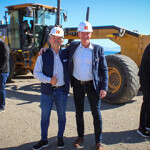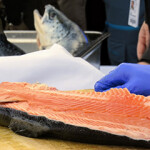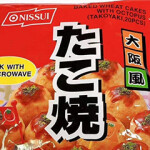RaNTrans project investigating use of oysters, seaweed to UK’s raw sewage dumping problem

A European Union-sponsored study is seeking rapid-response solutions for eutrophication, which is threatening fish populations globally.
The Rapid Reduction of Nutrients in Transitional Waters (RaNTrans) project, which is being led by a consortium of universities and research agencies in Great Britain and France, is looking at methods for the reintroduction of European oysters (Ostrea edulis) as a “bioremediatory,” or water filterer. The E.U. has labeled Ostrea edulis as a priority for conservation due to a population decline caused by overfishing and worsening water quality. Most oysters cultivated in Europe are now Pacific oyster varieties, according to Rohan Smith, a director for marine projects at Natural England, one of the partners in the RaNTrans project.
An expansion of kelp and other “desirable” types of seaweed are also being explored by the project, according to Smith, partially for environmental reasons and partly because there are huge potential economic benefits of oyster and kelp cultivation for coastal communities.
The project is timely given the public outcry in response to the recent campaign to bring awareness to the amount of raw sewage entering the sea along the English coast. Besides causing danger to bathers and avian and marine life that has roused the ire of British and E.U. politicians, eutrophication of water as a result of the dumping has created vast thick algal mats that can reach several centimeters in thickness.
“As they break down, the mats remove the oxygen from the sea-water, producing hypoxic regions that have been known to kill large numbers of fish,” Smith said.
But Smith said the RaNTrans project is investigating how algal mats could be processed for aquaculture feed and the commercial potential of various microorganisms found in the algal mats such as polysaccharides and polyphenols, which have antibacterial and antifungal properties.
“[This presents] an ideal opportunity to find novel biochemicals that could make the algae more valuable than gold on a price-per-kilogram basis,” said Smith.
Upstream fixes to the problem, such as the upgrading of the U.K.’s sewage treatment system and reducing the country’s use of fertilizers in agriculture and the adoption of “catchment-sensitive” farming could take decades, according to Smith, in calling for support of the RaNTrans work.
“Meeting the U.N. [sustainable development] goal of clean oceans in less than a decade is a significant challenge without faster and direct approaches,” Smith said.
The Rapid Reduction of Nutrients in Transitional Waters project (RaNTrans) is co-financed by the European Regional Development Fund through the Interreg France (Channel Manche) England Program. The European Regional Development Fund contribution for this project is EUR 1,970,917 (USD 1,977,195) of a total project budget of EUR 2,882,288 (USD 2,891,469). The lead partner on the project is the University of Portsmouth, and other partners include CEFAS, Natural England, Bournemouth University, University of Brest, Centre d'Étude et de Valorisation des Algues, University of Caen Normandy, Université de Bretagne Occidentale Brest, Aleor, and ARGANS.
Photo courtesy of RaNTrans






Share